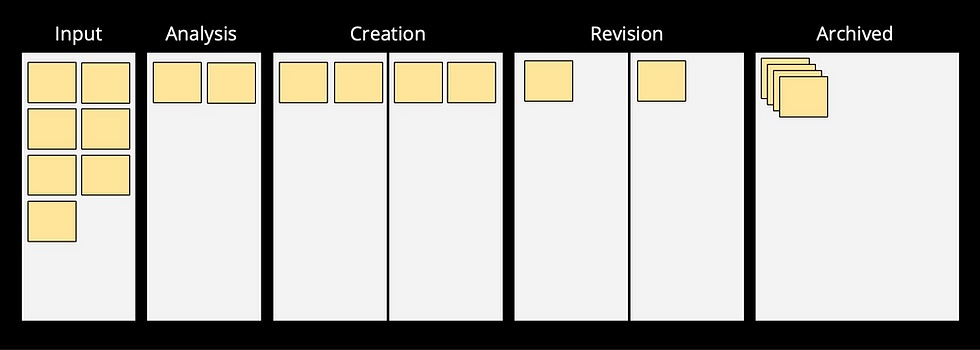Cross functionality means time to market in our hands
- Rafael Sabbagh
- Jun 15, 2023
- 3 min read
Here's one important point of Scrum. When we say the Scrum team is cross-functional, meaning that they need to be able to create end-to-end things in each and every Sprint, what we want is to increase our capacity to deliver. That doesn't mean delivering more, it means delivering often.
By having a team that works end-to-end, that eliminates - well, in our ideal world - external dependencies, whatever comes to the team inside the Sprint, they build it, and at least by the end of the Sprint, it is done and it can be delivered. So in every Sprint, we converge to deliverables. We converge to an opportunity for delivery, for releasing.
The choice, the decision on delivering that or not belongs to the Product Owner. So we don't have to deliver on every Sprint, but we need to convege to deliverables on each and every Sprint. That's a rule.
And why do we want that?
Well, we are fighting what happens, which is the opposite of that, which is we are working on tasks on a large plan, and we are going, and we are doing, and we have this percentage done, but we are nowhere.
We're like flying on the space. We're not converging.
And when we get closer to the date that we actually have to deliver... Well, three quarters of the time, we are not able to.
So Scrum has a true obsession on converging to deliverables. And if we work as a Product Owner and we're not seeing things landing into solid ground, they're flying in a large plan, that's horrible. That's the worst thing that could happen.
We need to converge frequently.
And then me as a Product Owner can decide when to deliver. So if we think of a Product Owner as someone from business or at least making business decisions because we're deciding on the value we will deliver, we are putting on the business hands one of the most important powers that business can have, which is to decide when to deliver.
So think about this. If in one side the Product Owner is prioritizing, slicing small, getting to end-to-end stuff, prioritizing, and then the team transforms that into something that works, and then in the other end of each Sprint, the Product Owner decides if it will be delivered or not, the Product Owner and therefore business have time to market in their hands.
Don't you agree that deciding the time to market is a crucial business empowerment that we want to have?
Scrum done well allows you to do that.
Of course, in many situations, we don't see end-to-end teams. There are external dependencies.
What we can do is gradually evolve the team so it encompasses more and more things and get as end-to-end as possible. So maybe there is still some dependencies remaining at the beginning or at the end of the cycle, never at the middle. At the middle, you become a hostage. But maybe there's something remaining, and maybe we can manage that.
Probably not with Scrum.
I'm not going to enter there, but Kanban could help us with managing those queues. They are queues after all.
But the more we reduce the existence of those queues, and we have something that is end-to-end done by the team, the better this is. That's the Scrum approach to being able to release often.
That's key point on Scrum. Most of the power of Scrum is here. That's why we want a cross-functional team: because we want to have time to market in our hands.

Comments